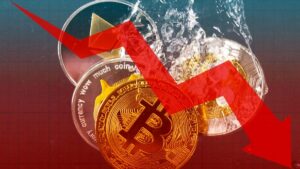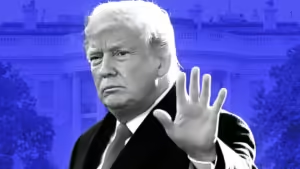GameStop’s Meme Stock Resurgence: A Fed-Induced Rally?

Quick Take:
- GameStop surges nearly 160% since Friday, sparking questions about the Federal Reserve’s role.
- Analysts speculate if the Fed’s recent policy decisions contributed to the meme stock revival.
- Billionaire investors express perplexity over the Fed’s handling of inflation and financial conditions.
The resurgence of GameStop’s meme stock frenzy has ignited fervent speculation within financial circles, prompting scrutiny of the Federal Reserve’s policy decisions. Since Friday, GameStop shares have skyrocketed by approximately 158%, reviving memories of the retail investor-driven frenzy witnessed earlier.
Analysts are now questioning whether the return of meme stocks could be linked to the Federal Reserve’s recent monetary policy stance. Federal Reserve Chair Jerome Powell’s indication in December of potential interest rate cuts by 2024, with the possibility of up to three rate reductions, has come under renewed scrutiny amidst the current market exuberance.
Neil Wilson, chief market analyst at Finalto, expressed concerns over the Fed’s timing, suggesting that the central bank might have pivoted too soon. Wilson attributed the reacceleration in inflation to the Fed’s premature policy shift, drawing parallels to former Fed Chair Arthur Burns’ laissez-faire approach to inflation in the 1970s.
Billionaire investor Stanley Druckenmiller echoed similar sentiments, expressing bewilderment over the Fed’s December statement. Druckenmiller opined that the Fed missed an opportune moment to maintain a balanced stance, particularly as inflationary pressures persisted and financial conditions tightened. He criticized the Fed for potentially exacerbating market volatility by reigniting speculative fervor across various asset classes, including cryptocurrencies.
The GameStop frenzy has also caught the attention of crypto traders, who view it as a potential precursor to increased retail participation in digital asset markets. Observers note that the previous surge in GameStop shares coincided with a monumental rally in Dogecoin, suggesting a correlation between meme stocks and crypto enthusiasm.
Zion Thomas, known in the crypto community as Ansem, underscored this correlation, highlighting the historical connection between GameStop’s rally and subsequent cryptocurrency booms. Thomas emphasized the potential for retail investors to pivot towards crypto assets amidst renewed market interest, signaling a broader shift in investment sentiment.
As GameStop continues to dominate headlines, market participants remain vigilant, analyzing the intricate interplay between meme stocks, traditional equities, and digital currencies. The convergence of these disparate market forces underscores the dynamic nature of contemporary finance, where retail sentiment can catalyze seismic shifts in asset prices.
In this volatile landscape, investors navigate uncertain terrain, seeking clarity amidst the cacophony of market chatter. The GameStop saga serves as a poignant reminder of the enduring influence of retail investors and the ever-present specter of market speculation.
As stakeholders reflect on the implications of GameStop’s resurgence, the role of regulatory bodies, including the Federal Reserve, comes under heightened scrutiny. The delicate balance between monetary policy objectives and market stability remains a focal point of debate, as policymakers grapple with the intricacies of modern finance.
For now, the GameStop phenomenon continues to captivate market participants, serving as a barometer of retail sentiment and a harbinger of potential market trends. Whether this resurgence heralds a sustained rally or merely a fleeting episode remains to be seen, but one thing is certain: the GameStop saga remains an indelible chapter in the annals of financial history.



